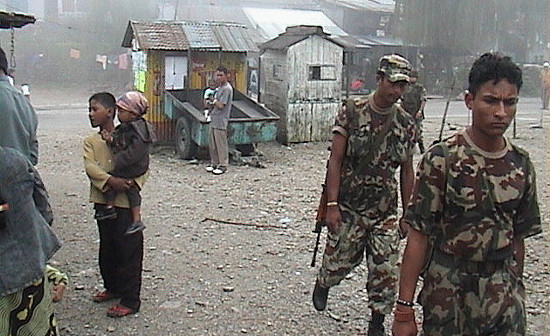What has the past decade meant for peace in Nepal?
TransConflict is pleased to present a new report from Conciliation Resources exploring the peace process in Nepal ten years on from the signing of the Comprehensive Peace Agreement.
| Suggested Reading | Conflict Background | GCCT |
By Deepak Thapa and Dr Alexander Ramsbotham
Please click here to read the complete report
Ten years on from the signing of the Comprehensive Peace Agreement in Nepal to end a decade-long civil war, peacebuilding organisation, Conciliation Resources, launches a new publication examining the peace process and progress that has been made since the signing.
Featuring over 30 articles and interviews, this edition shares the perspectives of Nepali and international experts, activists and ex-combatants, including Devendra Raj Panday, former Minister of Finance and key player in both the 1990 and 2006 People’s Movements, and Suk Bahadur Roka, former Maoist People’s Liberation Army (PLA) Commander and Principal Private Secretary to the second Vice-President of the country.
Two steps forward, one step back: Nepal’s peace process was launched at an event in London on 3 April. Speakers included issue editor Deepak Thapa, who has written extensively on Nepal, is a columnist with The Kathmandu Post and director of Nepali research organisation Social Science Baha.
“Opinion differs as to whether Nepal is ‘post-conflict’, or if the past ten years of transition represents another phase of struggle, animated by the attempt to radically overhaul a system that has marginalised large sections of society.” Alexander Ramsbotham, Director of Accord and Joint-Issue Editor. Despite a number of challenges, Nepal’s peace agreement has sustained. Progress has been made, particularly in addressing exclusion – one of the root causes of the conflict.
The publication is divided into three main sections. The first looks at the peace process, which began in the immediate aftermath of the success of the second People’s Movement in April 2006. A second section explores the political process, charting the rise of identity-based political groups, the role of the 2008 and 2013 Constituent Assemblies and commitments to inclusion in the 2007 and 2015 Constitutions. A third section on inclusion explores how important elements of a more inclusive polity and society have been secured since the CPA, the important role Nepal’s vibrant social movements have played in this, and the backlash against inclusion that has gathered momentum as the peace process has progressed.
Deepak Thapa is the Director of Social Science Baha, a research organisation based in Kathmandu. He has written extensively on Nepal’s contemporary political developments and is also a columnist with The Kathmandu Post. In 2006, he was a Visiting Fellow at the Center for International Conflict Resolution, Columbia University, as The Asia Foundation’s inaugural William P. Fuller Fellow in Conflict Resolution. His book publications include Understanding the Maoist Movement of Nepal (2003) and co-author of A Kingdom under Siege: Nepal’s Maoist Insurgency, 1996-2004 (2005) and Gender and Social Exclusion in Nepal: Update (2013).
Dr Alexander Ramsbotham is Director of Accord at Conciliation Resources. He joined the organisation in August 2009, before which he was a research fellow in the international programme at the Institute for Public Policy Research. He worked as specialist adviser to the House of Lords European Union (EU) Select Committee in its inquiry into the EU Strategy for Africa, before which he was head of the Peace and Security Programme at the United Nations Association-UK. He has also been an associate fellow in the International Security Programme at Chatham House. Alexander completed a PhD in July 2011.
The views represented in this piece do not necessarily reflect those of TransConflict.



















